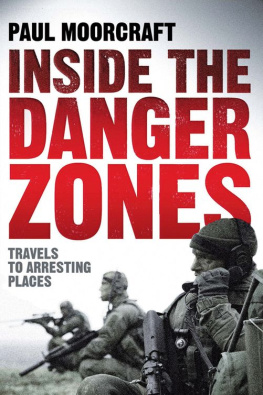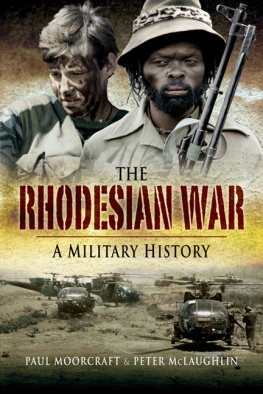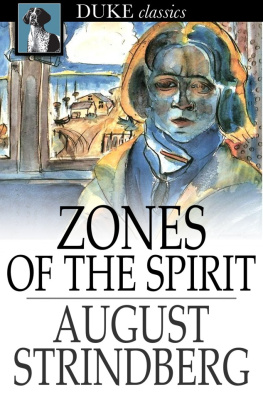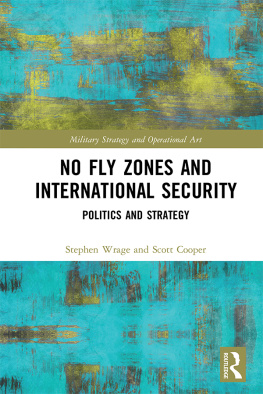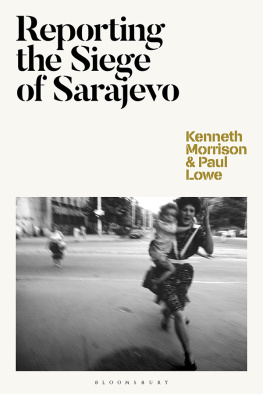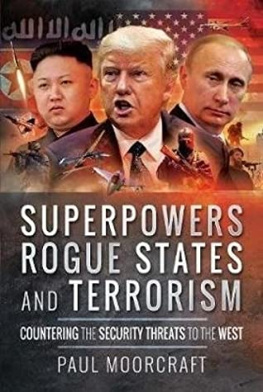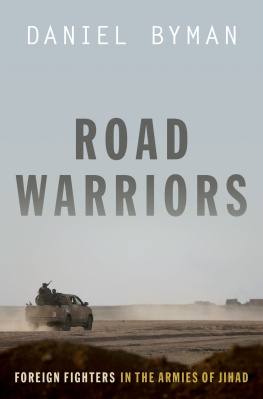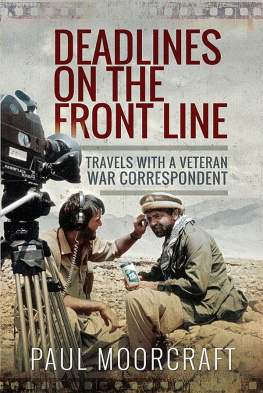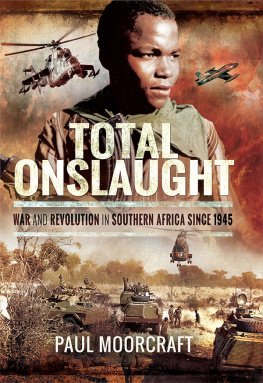I cannot tell you exactly what type of book this is because I dont know. Yes, it is mainly about war zones. Sure, its about travel in exotic locations. Its also about journalism. And there is, I hope, humour as well as adventure.
Perhaps I can explain why I wrote it.
I have spent the best part of the last forty years travelling and talking to really odd often homicidal people in unusual places, but these are not the war memoirs of a Welsh hack. My initial desire to travel in and write about war came from my frustrations as a Sandhurst instructor and, later, university academic. I didnt want just to talk about or research other countries, I wanted to feel them. Another reason was my objection to the type of journalism, especially evident on American TV news, which suggests that reporting and film-making are based on synthetic travels in a bubble. At the other end of the scale, I objected just as vehemently to some TV stars mock heroics, super-hyped on air. I wanted to explain what went on behind the scenes, particularly the cock-ups. Mostly my cock-ups. And my numerous arrests, always in the line of duty of course.
I have struggled hard to be neutral about conflicts, without being afraid to call a spade a bloody shovel when necessary. So if youre looking for political correctness, dont read this book. Although I have sometimes used the dialogue style of a novel, the conversations are based upon my contemporary notes and video or audio recordings. In short, I have tried to make my account as accurate as possible.
I hope readers will identify with my travails (travels comes from the same word) as I walk to Kabul with a camel (and holy warriors) who hated me, get lost on a motorbike ride with psychopaths in central Mozambique, fall down drunk in a shebeen in Soweto, or, like everyone else, become totally confused in Lebanon or former Yugoslavia by the craziness of politicians.
Much of my reporting was done within the cosy intellectual parameters of the Cold War. Then, post-9/11, came the so-called clash of civilisations and a series of travels in Islamic lands, returning to Afghanistan, despite vowing never to go back, fresh locations in Iraq and Darfur, and indulging in the tragic dj vu of conflicts in Israel/Palestine. I thought the world had been turned upside down by the assaults on the twin towers, but the economic crash of 20089 threatened to do to capitalism what years of communist intrigue had failed to do. Perhaps al-Qaeda had better hurry up, or the Western world will implode before bin Laden et al. can aspire to complete their mission.
Looking back, I dont know how I managed to wriggle out of some of the countries I visited, usually with a film, book or radio story in my bag. I am probably one of the worlds clumsiest people, so I hope you can sometimes smell not just the cordite but also the fear, usually mine.
I do talk about guns and battles but I am more concerned with colourful characters, the customs, politics, and landscapes. Buildings interest me more than bullets. Sometimes I write about specific events; in other chapters I try to catch the mood of major upheavals, such as the collapse of communism in Eastern Europe, the implosion of former Yugoslavia or the chaos in post-Saddam Iraq. But its not all depressing, and I sometimes stretch the definition of conflict and write about nice places. Some philosophical themes hover in the distance, but they are very implicit. Journalism is not about lectures, it is always about stories. I hope you enjoy reading them.
The photographs are my own, except where indicated otherwise. I have few acknowledgements, mainly because most of the people I met in this line of work did everything they could to hinder, discourage or, occasionally, shoot me. I would, however, like to thank Susan Mears, my agent, Tony Denton for endless computer help, Fran and Liz Ainley for believing in my writing, and my editor Sam Carter. I thank also Caroline Bolton for allowing me to use some of the material from my first foray into autobiography, What the Hell am I Doing Here?, published in 1995 by the now sadly defunct Brasseys. Some of the material in this book also comes from my second autobiographical venture, Guns and Poses: Travels with an Occasional War Correspondent (2001). I salute Nick della Casa, who was killed in Kurdistan, and Al J. Venter, who survives everything. I also appreciated the good companionship of Irwin Armstrong, a cameraman who was so tolerant of my many technical, and personal, failings. Finally, to Tim Lambon, now deputy foreign editor of Channel 4 News, thanks for so often covering, and kicking, my butt. Stream Cottage
Gomshall
Surrey
UK
September 2010
facing page
facing page
facing page
facing page
facing page
facing page
facing page
facing page
The mountains encircling Kabul are savage, beautiful and sometimes treacherous like the people who inhabit them. For five years death had stalked their valleys, in the form of Soviet Hind helicopter gunships. These flying tanks were exquisitely armed: 12.7mm cannon protruded from the nose and the stub wings carried bombs and rockets. At first I wasnt too worried about them, as they had been swashbuckling across the clear Afghan skies for days, ignoring us as eagles scorn flies. The mountains seemed to provide protection, the guerrillas were blas, and I too had become complacent.
That complacency was shattered at 7 a.m. on 21 July 1984 the gunships came calling. The Russians had launched a major offensive to clear the mujahedin rebels from their positions around the capital. I was dozing in a mud hut, along with the rest of our five-man film team, when someone shouted Choppers!
Two fat Mi-24 Hinds were hovering above like expectant vultures. The cameraman, Chris, rushed to set up the equipment to film them. The Captain, a richly moustachioed Afghan officer who had defected to the mujahedin, screamed at us to take cover. He knew what was coming.
We grabbed our heavy rucksacks and some of the bulky film equipment.
Our translator, Doc, shouted, Put your equipment in the cave.
We hastily shoved our kit away as the five-bladed helicopters drew closer.
Take cover in there, Doc ordered nervously.
The tiny exposed cave was full of ammunition it seemed suicidal to hide there if high-explosive bombs started to crash down on us, so Chris and I ran into a small gully. There was no other cover on the stark hillside except a few trees and three decrepit mud huts about 100 yards away. As the only buildings in the area they would presumably be prime targets for the gunships rockets. Crouching in the gully, we realised it was used as a latrine, but we didnt dare move. Better shit than shrapnel.
Moreover, I had broken a golden rule about never sharing a foxhole with anyone braver than me.
Four sleek MiG-23 aircraft arrived and performed a high-altitude turn above, then swooped down and started to bomb the valley floor half a mile from where we crouched. Two more MiGs joined the party. Framed against the cloudless sky, their deadly grace was almost bewitching.
The helicopters dropped altitude and hovered just above us. A guerrilla opened up with a Dasheka anti-aircraft gun. If by some miracle the Hinds hadnt seen us before, they could hardly ignore us now.
Pointlessly, I shouted shut up.
He was only sixty yards away but he couldnt have heard me above the gunfire, even if he had spoken any English. In vain, I ransacked my severely limited Pushtu vocabulary for a translation.
The MiGs blasted away. As they came out of their bombing runs they sometimes shot out anti-heat-seeking missile flares, which left a mosaic of cloud patterns against the deep blue sky. Chris was cursing like a banshee. Action all around, and from our gully we could not film properly.

